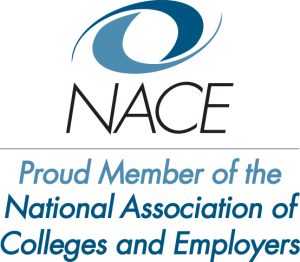Career vs a Job: What’s the Difference?
Do you know that there is a difference between career vs a job?
If you’re currently going to school, you are probably concerned about what comes next. Even if you are working, you might be wondering about the same thing! In either case, thinking about what job you’re going to work might be the same as thinking about what career you are going to have. Careers actually differ from jobs in several ways.
Career vs a Job: What is a Job?
A job is what you do for work right now, meaning that it's what you do to get paid. A job might not be something you plan on doing long term or even enjoy. For example, you might work as a cashier at a fast-food restaurant to make some extra money while going to school for biology. That is your job, but it is not a part of your career.
Career vs a Job: What is a Career?
In a general sense, your career is the combination of what you intend to do and the string of related jobs and professional projects you put together as part of that intention. The fast-food job was not a part of your plan, so it doesn’t make the cut. Your studies, however, can be a part of your career. Same with any preparatory work you do as part of those studies – tutor, research assistant, teaching assistant, etc. Once you have a job, if you find yourself engaging in “extracurricular” activities that are related to your job (for example, going to research conferences, mentoring someone, or participating in communities of interest) there’s a good chance that the job you’re working is a part of your career.
There’s a simple reason for this: your career is largely built from not only your skills and experience but also your interests, values, and preferences. In short, your career should unfold from what you like doing in addition to what you’re good at doing.
Why does the distinction between a career and a job matter?
If you are only starting to think about your career, or you’re unsatisfied with your current career, understanding the distinction between your job and your career can be very illuminating. You may find yourself hating your job but loving the field you’re in – in which case, a job change is probably in order.
On the other hand, you might love your job but have misgivings about where it’s going or why you’re in your field. This can be a trickier situation to untangle: There is likely something about your job that you like and are interested in that is not currently being met by your career path. For example, you might have gotten yourself a job as a researcher in a biology lab, but you find yourself enjoying the data analysis and coding work a lot more than the biology research.
That could be a signal that your real interests are in a new field, which could necessitate a new job and more training, or it could be an opportunity for you to cross-train, shadow someone, and ultimately create a new path for yourself out of both your knowledge and experiences in biology with your interests and new skills in data analysis. In other words, changes or developments in interest could mean a career shift is in order, but it could also open new doors to you within your current path.
Knowing yourself can help you find a career you’re passionate about
In short, knowing the distinction between a career and a job can help guide you through difficult challenges in finding the best job or career for you. Knowing your interests, values, and preferences is a great start to not only narrowing down your choices but also making an educated choice. PathwayU is a great resource to start knowing yourself and discover a career you are passionate about.
If you’re interested in learning more about how to find a career that fits you, you might be interested in some of our other recent blogs:
-1.png?width=288&height=67&name=PathwayU_PGLogo%20(1)-1.png)
.jpg)


